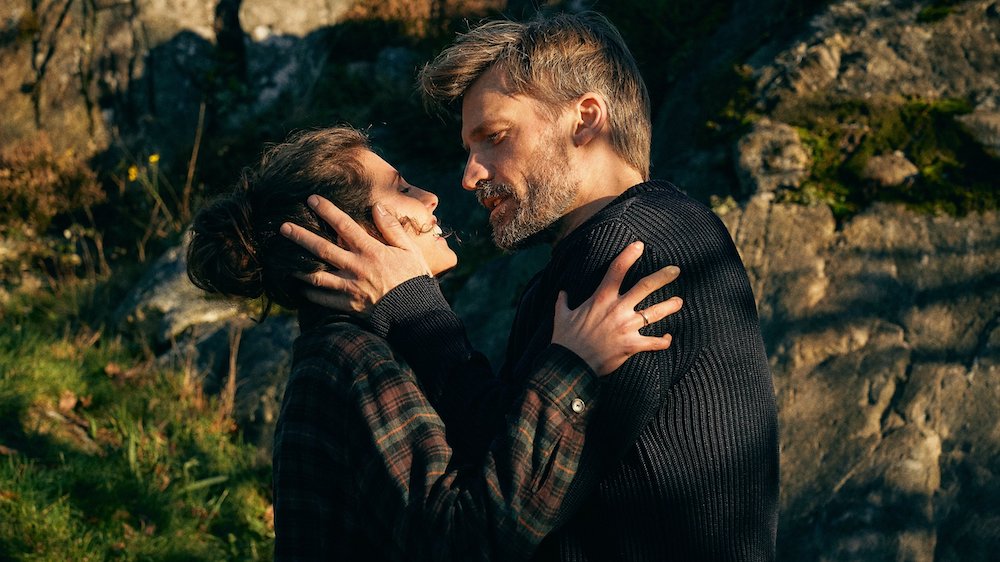You expect food to be the central focus of A Taste of Hunger, given the title and the fact that the film centers on a chef named Carsten (Nikolaj Coster-Waldau). What’s unexpected is the references to food and cooking that exist outside of the kitchen. The majority of Christoffer Boe’s film takes place over one evening in Copenhagen and uses the elements of food language, such as, “Sweet–When They Saw Each Other for the First Time” and “Sour–When Frederik met Maggi,” to introduce flashbacks that transport us through the character’s lives over the last few years.
There’s a great quote about food that is delivered by Carsten, which sums up the film perfectly: “The world doesn’t give an (expletive) about our good intentions, dreams and hopes. All that matters is what’s on that (expletive) plate.” These food-centric references, especially the ones used for the flashbacks, add sapiness and detract from the drama. Luckily, Coster-Waldau and co-star Katrine Greis-Rosenthal pull us into their orbit just enough that it’s easier to overlook some of this.
When Carsten met Maggi (Greis-Rosenthal) while catering a party, it was revealed that all he wants is to open a restaurant and to get a Michelin star. After all, it was she who voiced his truest desire during this meet cute. This flashback cuts up an eventful night in Copenhagen, where his dream may be slipping through his fingers.
In the present, Carsten has since opened his restaurant, Malus, and is in the middle of foreplay with his wife, Maggi, in a bar bathroom when he hears of a solo diner at his restaurant who could be the key to his star. He rushes to his establishment and discovers a bad batch of lemons has left the kitchen in one of the dishes. At the end of the night, he reams one of his employees for not testing the food and thinks this may be the end of his career. Their “good intentions, dreams and hopes” are all disintegrating, and it’s up to them to either crumble or survive.
Despite the Game of Thrones star-power of Coster-Waldau, this is Greis-Rosenthal’s film. Coster-Waldau’s motivations are clear, almost too clear, and for the majority of the time he’s a bit one note. He only becomes more layered as he acknowledges that he may have neglected Maggi in pursuit of his passon.
Maggi’s harder to crack. She says she wants a career and a family but seemingly tries hard to undo all of that. We’re missing something when it comes to Maggi, and Greis-Rosenthal plays up that mystery. She’s confident and assertive but keeps everyone at arm’s length, even the men in her life. Regardless, she and Carsten are deeply connected and have the chemistry to show.
The script is very singularly focused on the dreams of these characters, which, on the one hand, creates immediacy and high-stakes drama for the evening in Copenhagen. And for the story as a whole, we’re able to delve a little deeper into the minds of these characters and experience how all consuming their goals really are.
Unfortunately for those characters that are not as well fleshed out, no matter how convincing the performances may be it falls flat. The involvement of Maggi and Carsten’s children, which becomes integral later on, is forced, as really their purpose is to make sure an affair has an even tighter grip on the narrative than it already does. Some parts of this film are delicious, while others are a little off. Sometimes it pays to keep it simple and have something familiar – like Maggi’s favorite, a hot dog – and just leave the fancier dishes alone.









